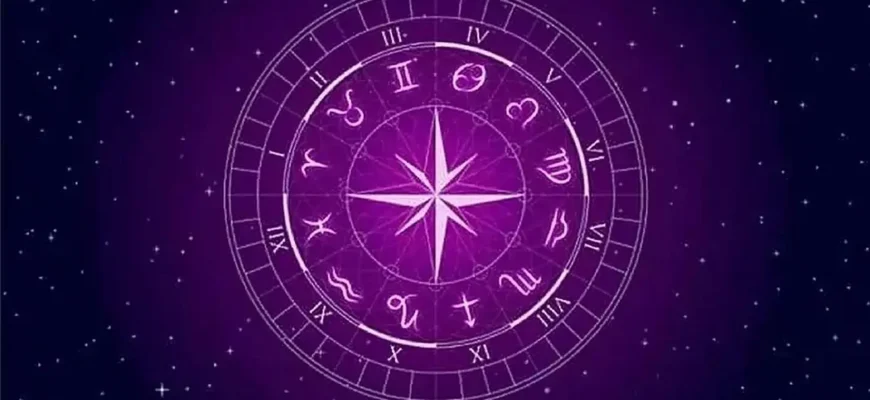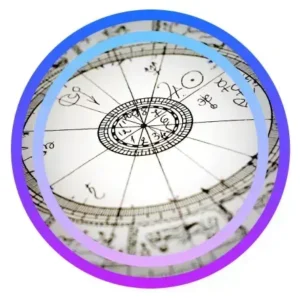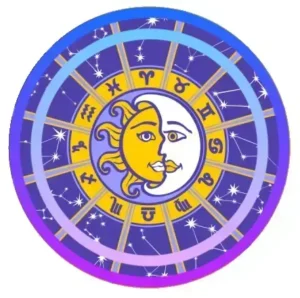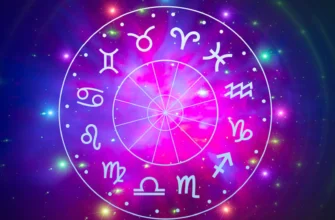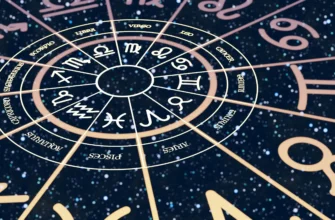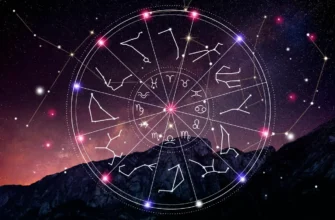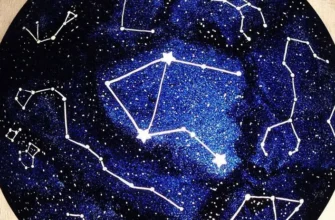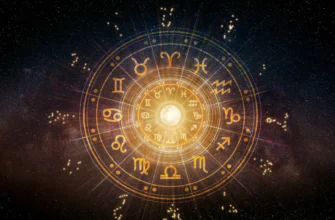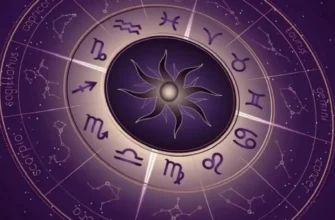Venus conjunct Uranus in synastry represents instant attraction—a connection that feels electric, impulsive, and impossible to ignore. In relationship synastry, this aspect often marks love at first sight or a magnetic pull that disrupts routines and awakens dormant desires. Venus symbolizes affection and relational comfort, while Uranus brings unpredictability and emotional liberation. According to synastry chart interpretation, this creates a dynamic where love is exciting but rarely predictable.
The relationship may evolve quickly, or partners may resist labels and traditional expectations. In love compatibility astrology, this aspect can indicate unconventional bonds, surprising emotional breakthroughs, and a strong need for honesty and freedom. Through deeper synastry chart meaning, Venus conjunct Uranus suggests that each partner challenges the other to grow beyond old patterns. This isn’t the aspect of quiet, slow-developing romance—it’s the aspect of awakening, reinvention, and emotional truth told without hesitation.
Venus represents love, beauty, pleasure, values, harmony, social grace, and the capacity to attract and be attracted in the Birth Chart. Uranus embodies sudden change, rebellion, freedom, innovation, unpredictability, and the principle of liberation from convention and constraint. When these planets unite through conjunction in synastry, Venus becomes vessel through which Uranus experiences its need for freedom, excitement, and breaking from traditional patterns, while Uranus becomes force that awakens Venus to possibilities beyond conventional relationship structures and socially-approved expressions of love and pleasure.
The conjunction, as astrology’s most potent aspect, merges planetary energies completely. When Venus meets Uranus, attraction and freedom become inseparable – the Uranus person feels drawn to Venus through mysterious, uncontrollable force they cannot rationally explain, while Venus experiences Uranus as electrifying presence that simultaneously attracts and disrupts their normal patterns of relating, loving, and seeking pleasure. The relationship feels fated yet unpredictable, intensely magnetic yet resistant to conventional structures, and often more liberating than binding despite powerful mutual attraction.
Unexpected Attraction: The Lightning Bolt Experience
Venus conjunct Uranus creates attraction second in intensity only to Venus-Mars conjunctions, yet operating through completely different mechanism. When Mars conjuncts Venus, the Mars person experiences direct physical attraction – clear, straightforward desire for Venus’s body, appearance, and physical presence. Mars knows exactly why they’re attracted and what they want. Venus conjunct Uranus operates more mysteriously – the Uranus person feels unexpected attraction, as if drawn by force beyond their control or understanding, magnetized by something about Venus they cannot rationally identify or explain.
Uranus represents individual’s inner, uncontrollable energy – the part of psyche that cannot be domesticated, predicted, or channeled through conventional patterns. Unlike Mars’s straightforward physical desire responding to obvious qualities like appearance or physique, Uranus isn’t attracted to these conventional factors. Instead, Uranus responds to something inexplicable in Venus – perhaps their energy, their essence, the way they represent possibility for liberation, or simply cosmic timing making Venus the catalyst for Uranus’s need for disruption and change at this particular moment.
This Uranian attraction has unpredictable nature – it often occurs unexpectedly rather than in conventional contexts where people seek partners. Uranus might meet Venus in unusual circumstances, at unlikely times, or through situations having nothing to do with romantic intention. The dentist falling in love with patient while examining her teeth perfectly illustrates this – dental examination represents least romantic context imaginable, yet Uranus’s attraction struck precisely there because Uranus operates outside conventional romantic scripts and expectations.
Romantic relationships formed through Venus-Uranus conjunctions often appear suddenly, fitting description of “love at first sight” – though not the romantic fairytale version but rather the lightning-strike version where attraction arrives with shocking, disorienting intensity. If spark doesn’t ignite immediately upon first meeting, the relationship likely isn’t Venus-Uranus conjunction manifestation. This aspect doesn’t build gradually through courtship rituals – it strikes instantly or not at all, with Uranus recognizing Venus as catalyst for whatever liberation or disruption Uranus unconsciously needs in that moment.
When examining horoscope compatibility through Venus-Uranus aspects, the conjunction indicates immediate, powerful attraction that bypasses rational evaluation and conventional courtship. However, this intensity doesn’t guarantee relationship longevity – the same Uranian energy creating sudden attraction can create equally sudden departure when Uranus’s need for freedom reasserts itself.
The Fleeting Nature: Uranus Pursues and Uranus Departs
One of Venus conjunct Uranus’s most challenging characteristics involves the potential for Uranian attraction to arrive and depart with equal speed. If no other stabilizing aspects exist between the two people – particularly Saturn or Pluto connections creating binding karmic ties – Uranus typically initiates both relationship beginning and relationship ending. Uranus pursues Venus intensely, overwhelms them with sudden attention and magnetic attraction, then just as suddenly withdraws when freedom needs reassert themselves or when Venus’s presence begins feeling constraining rather than liberating.
This creates painful pattern where Venus, swept up in Uranus’s intense pursuit and magnetic attraction, invests emotionally in relationship that Uranus experiences as temporary adventure or liberation opportunity rather than committed partnership. Venus doesn’t understand that for Uranus, the relationship’s purpose involved breaking free from previous constraints, experiencing something unconventional, or simply responding to momentary cosmic impulse – not building lasting partnership requiring sustained commitment and conventional relationship progression.
The conjunction’s intensity deceives Venus into believing the attraction’s power guarantees relationship significance and longevity. However, intensity and duration operate independently in Uranian relationships – the most powerful attractions can prove most temporary precisely because they serve Uranus’s immediate liberation needs rather than long-term partnership desires. Once Uranus has extracted whatever freedom lesson or unconventional experience the relationship provided, Uranus often departs with shocking speed, leaving Venus confused about how something so intense could dissolve so suddenly.
However, when Venus-Uranus conjunction occurs alongside other binding aspects – particularly Saturn conjunctions, trines, or sextiles creating karmic responsibility and commitment, or Pluto aspects indicating deep transformational bonds and power dynamics – the relationship can progress toward marriage or long-term partnership. These stabilizing aspects provide container preventing Uranus from simply departing when freedom urges arise, creating obligation and depth that complement rather than contradict the Venus-Uranus attraction and freedom dynamics.
In compatibility zodiac analysis, Venus conjunct Uranus alone suggests exciting but potentially temporary connection. Venus conjunct Uranus combined with Saturn or Pluto aspects suggests unconventional relationship that nevertheless achieves stability and longevity through balancing freedom with commitment, excitement with responsibility, and liberation with binding karmic ties neither person can easily escape.
Unconventional Relationships: Freedom Within Partnership
When Venus conjunct Uranus relationships do achieve stability and commitment through supporting Saturn or Pluto aspects, they maintain distinctly unconventional quality even within marriage or long-term partnership. The Uranian nature doesn’t disappear through commitment – it simply expresses within partnership structure rather than destroying that structure. These relationships feature unusual arrangements, remarkable freedom for both partners, and resistance to traditional relationship expectations around exclusivity, time together, or conventional couple behavior.
Examples include wives continuing to socialize extensively with friends after marriage, maintaining independent social lives that don’t revolve around husband or couple activities. Or husbands frequently going out alone, staying out overnight, pursuing independent interests and friendships without partner participation or supervision. These patterns might trigger jealousy or conflict in conventional relationships, but Venus-Uranus couples understand and accept – even require – this freedom as essential to relationship sustainability.
The couple might maintain separate residences, take separate vacations, pursue dramatically different lifestyle rhythms (one highly social, one solitary), or simply resist coordinating schedules and activities in ways conventional couples consider normal. Friends and family might question whether they’re “really together” given how independently they operate, not understanding that this freedom represents the relationship’s strength rather than weakness. Attempting to impose conventional togetherness or traditional partnership expectations would destroy what makes the relationship work for both people.
Venus-Uranus couples often excel in entertainment, socializing, and pleasure-seeking activities. Venus’s natural affinity for these domains gets amplified by Uranus’s energy, making the couple unusually enthusiastic about parties, social events, recreational activities, and pleasure pursuits. If they work in entertainment, hospitality, event planning, or social industries, the aspect benefits their careers by making them naturally charismatic, exciting, and able to generate buzz and interest around whatever they’re involved in.
If they don’t work in these fields, they’re still typically more socially active and pleasure-focused than average couples – the couple that hosts exciting parties, organizes group adventures, introduces people to new experiences, and generally operates as social catalysts creating fun and excitement within their communities. The relationship itself becomes source of entertainment and pleasure radiating outward to others rather than creating insular couple bubble excluding outside connections.
Venus’s association with resources means Venus conjunct Uranus often increases Venus’s material circumstances through Uranus’s influence – perhaps through introducing Venus to unusual income opportunities, unconventional investment strategies, technological ventures, or simply through Uranus’s networks and connections providing access to resources Venus couldn’t reach through conventional channels.
Gender Dynamics and Role Flexibility
Traditional astrological interpretation examines Venus-Uranus through gendered lens, though core principles apply regardless of gender or sexual orientation. When man’s Venus conjuncts woman’s Uranus, the man perceives the woman as non-traditional, liberated from conventional feminine expectations, and someone with whom he can be more authentically himself without conforming to traditional masculine roles or relationship scripts. She represents freedom from gender expectations – he doesn’t need to be provider, protector, or conventional husband because she doesn’t need or want these traditional roles.
The woman with Uranus conjuncting man’s Venus often initiates relationship unconventionally, pursues rather than waiting to be pursued, and makes clear she expects freedom and equal agency within partnership. She’s not available for traditional feminine roles of supporter, nurturer, or devoted helpmate – she’s pursuing her own life and interests, and relationship must accommodate rather than replace her independent identity and freedom needs.
When woman’s Venus conjuncts man’s Uranus, the man employs unusual, exciting, or stimulating methods allowing the woman to experience less traditional emotional relationship. He might be unconventional in courting approaches, relationship activities, or expressions of affection – avoiding romantic clichés in favor of experiences reflecting his unique personality and her individual preferences rather than generic romance scripts. This activates Venus woman’s emotional patterns, making her more adventurous, experimental, and willing to explore relationship possibilities she might have dismissed as inappropriate or unconventional if not for Uranus man’s liberating influence.
However, the most significant gender consideration involves recognizing that Uranus person often occupies unusual position when attraction strikes – they might be significantly older than Venus (age gap relationships being Uranian unconventional), already in relationship or married (making attraction adulterous or relationship-disruptive), or otherwise situated where pursuing Venus violates conventional propriety or social expectations. This unconventional positioning isn’t coincidence – it reflects Uranus’s essential nature of disrupting established patterns and conventional boundaries.
The dentist-patient example illustrates this perfectly: professional ethics typically prohibit romantic relationships between dentist and patient during treatment. The unconventional context (dental examination), the woman’s willingness to divorce to pursue new relationship, and the overall disruption of established boundaries all reflect Uranus’s operating principles. Similarly, the example of parents’ relationship involved fourteen-year age gap and father already having girlfriend and wife when meeting mother – these unconventional circumstances reflect Uranus’s disruptive, boundary-breaking nature rather than representing moral failures or character flaws.
Present-Moment Decisions Versus Karmic Destiny
Venus conjunct Uranus operates primarily in present moment rather than through past-life karma or predetermined destiny – a crucial distinction from aspects involving Saturn, Pluto, or Moon. Uranus represents decisions made right now that influence future trajectory, rather than accumulated patterns from past lives creating binding obligations. Venus also represents present-moment opportunities for pleasure, love, and connection rather than karmic debts requiring repayment.
This means Venus-Uranus attractions arise from current-life circumstances, cosmic timing, and present-moment needs for liberation and experience rather than from soul contracts established before incarnation or karmic obligations inherited from previous lifetimes. When Uranus meets Venus at pharmacy, dental office, or other unlikely location, this represents present-life opportunity rather than past-life appointment both souls had agreed to keep.
However, whether present-moment attraction develops into lasting relationship depends on whether other karmic aspects – particularly Saturn and Pluto – exist alongside Venus-Uranus conjunction. The parents’ relationship example illustrates this perfectly: father’s immediate decision upon seeing mother to pursue relationship reflects Uranian present-moment choice. However, their relationship progressing to marriage and lasting decades involved Saturn and Pluto aspects creating karmic binding neither person could easily escape once committed.
If father hadn’t made Uranian present-moment decision to pursue mother despite his existing commitments, their relationship wouldn’t have developed and past-life Saturn-Pluto destinies connecting them would have remained dormant, unexpressed in current lifetime. Uranus provided the entry point – the catalyst moment where destiny could shift based on choice made in present moment. Saturn and Pluto provided the binding force keeping them together once connection was established.
This reveals Uranus’s spiritual significance: it represents capacity to transcend karmic destiny through present-moment decisions. Every moment contains choice point where we can continue karmic patterns or break free into new possibilities. Uranus governs these liberation moments – the choices that alter destiny rather than simply fulfilling predetermined patterns. Someone choosing monastic life, for example, uses Uranus to change current-life trajectory and thereby alter Saturn-Pluto karmic patterns that would otherwise manifest through marriage, children, and conventional life progression.
In astrology and horoscope interpretation incorporating spiritual dimensions, Venus conjunct Uranus suggests relationship originated through present-moment choice and cosmic opportunity rather than karmic obligation, though other aspects might add karmic binding after initial connection. This means participants have more freedom to shape relationship’s direction through ongoing choices rather than being locked into predetermined patterns requiring expression regardless of conscious desires.
Comparing Venus-Uranus to Moon-Uranus
The distinction between Venus conjunct Uranus and Moon conjunct Uranus illuminates different relationship types and purposes. Moon carries past-life memories and emotional patterns accumulated through previous incarnations – when Moon conjuncts Uranus, Moon brings these karmic emotional patterns into interaction with Uranus’s present-moment disruption energy. The relationship feels familiar yet destabilizing, as if Moon recognizes Uranus from before while simultaneously experiencing them as disruptive force threatening emotional security Moon seeks.
Venus conjunct Uranus operates differently – neither planet carries strong past-life karmic weight in same way Moon does. Uranus is drawn to Venus in present life, responding to current-life qualities, timing, and liberation opportunities Venus represents right now. Unless Venus or Uranus occupies twelfth house (governing past lives, hidden karma, and unconscious patterns), the attraction and relationship decisions occur in present-moment consciousness rather than being driven by unconscious past-life memories neither person can access or understand.
This makes Venus-Uranus relationships feel more consciously chosen and less compulsively binding than Moon-Uranus relationships. Venus-Uranus participants recognize they’re choosing this unconventional connection based on present desires and needs rather than being pulled by mysterious forces they can’t resist or understand. This conscious quality provides more freedom – both to enter relationship and potentially to leave if it stops serving present needs – compared to Moon-Uranus’s more unconscious, emotionally compelling, and difficult-to-escape dynamics.
However, this also means Venus-Uranus relationships lack the deep emotional bonding and security that Moon aspects provide. The relationship might be exciting, liberating, and intensely attractive without creating emotional home or secure attachment both partners can depend on through life’s challenges. For people needing primarily freedom and excitement, this works beautifully. For people needing emotional security and consistent attachment, Venus-Uranus alone proves insufficient despite powerful attraction.
When consulting a Free Synastry Chart for relationship sustainability, Venus conjunct Uranus provides excitement and liberation but requires balancing aspects – particularly Moon contacts for emotional bonding, Saturn for commitment and stability, or Venus aspects for genuine affection and pleasure in each other’s company – to create relationships satisfying full range of human needs beyond freedom and unconventional excitement.
Challenging Aspects: Square and Opposition
The document notes that when Venus forms challenging aspects (90-degree square or 180-degree opposition) to Uranus, relationships typically prove difficult to maintain long-term. The instability and disruption Uranian energy creates becomes destructive rather than exciting when expressed through friction aspects. Venus square or opposition Uranus suggests attraction exists but manifests through constant disruption, sudden departures and returns, unreliability, and Uranus’s freedom needs consistently damaging Venus’s desire for pleasure, harmony, and consistent affection.
However, Venus conjunct Uranus operates differently – the conjunction’s merging quality means Uranus’s unpredictability expresses as eccentricity and unconventional relationship structure rather than as relationship-destroying instability. With conjunction, both people understand and accept the unconventional nature as relationship’s defining characteristic rather than as problem requiring fixing. The unpredictability becomes feature rather than bug – expected, accommodated, and even valued as what keeps relationship exciting and prevents stagnation.
This doesn’t mean Venus conjunct Uranus guarantees easy relationship – it means the challenges center around accommodating freedom and unconventional structures rather than around Uranus constantly disrupting Venus’s need for harmony through unexpected departures, affairs, or sudden relationship-ending decisions. When other stabilizing aspects exist, Venus-Uranus conjunction couples can build lasting relationships honoring both connection and freedom, both commitment and independence, both partnership and individual sovereignty.
Conclusion: When Lightning Becomes Relationship
Venus conjunct Uranus in synastry ultimately represents lightning-strike attraction that can, with proper supporting aspects and conscious understanding, transform into sustainable if unconventional partnership. The aspect creates immediate, powerful magnetic pull operating outside rational understanding or conventional attraction patterns – Uranus recognizes Venus as catalyst for whatever liberation, excitement, or disruption Uranus needs in present moment, while Venus experiences Uranus as electrifying force awakening them to possibilities beyond conventional love and relationship structures.
The relationship will never be traditional, conventional, or characterized by typical couple behaviors around togetherness, exclusivity, or coordinated lives. Attempting to force Venus-Uranus relationships into conventional structures destroys what makes them work – the freedom, excitement, unpredictability, and unconventional quality that attracted both people initially and continues sustaining their interest across time. These relationships thrive on independence, accept unusual arrangements, and resist social expectations about how couples should behave or relate.
For those exploring their Synastry online connections and discovering Venus conjunct Uranus in significant relationships, recognizing this aspect’s nature helps set appropriate expectations: expect excitement but not necessarily security, expect powerful attraction but not necessarily traditional progression, expect freedom but possibly not deep emotional bonding unless other aspects provide these qualities. The relationship offers liberation, adventure, and breaking free from conventional constraints – valuable gifts if these qualities align with what both people actually need and want from partnership.
Understanding Venus conjunct Uranus means recognizing that some relationships exist primarily to liberate us from outdated patterns rather than to provide security, that lightning-strike attractions serve purpose even if temporary, and that unconventional relationships aren’t failed conventional relationships but rather different relationship types serving different needs. The aspect teaches that freedom and connection aren’t necessarily opposites, that unpredictability can energize rather than destabilize when both people accept it as relationship’s essential nature, and that present-moment choices about love and partnership create destiny rather than simply fulfilling predetermined patterns from past lives or karmic obligations neither person chose.

